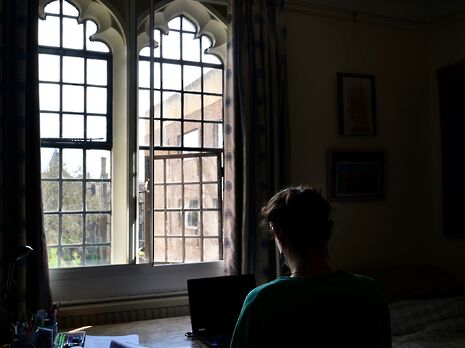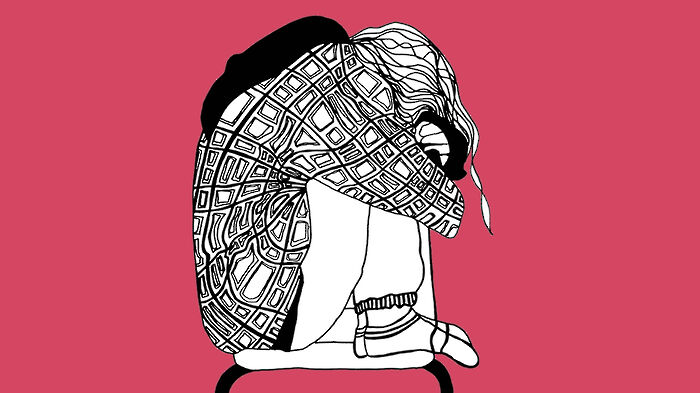I’ve stopped quantifying my self-worth by my exam marks
As everyone around us seems to be burying themselves in revision, we start to ask ourselves: why am I the only one who’s not able to cope?

Over the last week I’ve felt my imposter syndrome and insecurities skyrocket, and I’m sure I’m not alone. It seems that exams are mentioned in every class, supervision, even conversation – and I’m not entirely convinced the attitude here is healthy.
By nature, Cambridge students are high-achieving. They are, dare I say, perfectionists, who – if they didn’t thrive under pressure before arriving here – are conditioned to at least cope with this pressure by the time they leave. It’s not only exams themselves which add stresses to an already problematic and hectic environment, but the whole term; a four week lead-up that feels even more intense than the usual, brief eight weeks.
Revision became the perfect solution: it fulfilled a need I felt to be perfect and helped me to deny my deteriorating mental health
The danger is when exams become a form of self-validation, as I know from my own experience. In Cambridge, they become a way to prove that we ‘deserve’ to be here. From when we arrive, constantly looming essay deadlines – intended to make you question your own thinking – continue to feed into an unhealthy desire for academic approval. Studying at this university is tough and at times overwhelming, and it’s easy to use our results to justify our place here and validate our capabilities. But didn’t the interview process already do that?

I struggled with this during my A-Levels, when my mental health was in pieces, my self esteem down the drain and the prospect of a Cambridge offer looming over me. It felt like I had to prove that I was ‘good enough’ by getting high exam marks. It’s taken a few years of therapy and coping mechanisms, but I’ve gotten to a place where I no longer place such value on them, and I’ve never been happier.
Bring your voice — write for Varsity Features
Interested in writing for Varsity’s features section? Join our Facebook group to see our latest commissions, or email our Features team with a 150-word pitch of your article idea.
My philosophy now is that if I put in the work – which doesn’t mean missing out on sunlight, socialising, or sleep – then that should be enough. Still, I catch myself feeling overly-anxious about my exams sometimes, because in this all-consuming environment it feels as if there’s just no escaping it. And it’s easy to think that I’m not doing enough work, not doing enough anything, am just not enough, compared to what I see everyone else doing around me. This is, of course, complete nonsense.
This need for self-validation comes from the expectations we put on ourselves (again, the typical, perfectionist student), and interpret from others. “You go to Cambridge, you must be so clever” is, yes, a lovely compliment in some ways, but to me and my feelings of self-doubt, it often feels like an expectation or even an assumption. It’s a way of disappointing people when I do anything that might suggest otherwise.

Surrounding Cambridge students are all sorts of expectations, which can feel like a lot to live up to, so often we turn to exams to prove that these expectations aren’t unfounded. It adds to the pressure of exams, that we not only to use them to meet our own, sometimes impossibly, high standards, but also as a way to determine ourselves worthy of other people’s respect. Assessments give us a goal and a measure of achievement, but with that a measure of failure which more often than not is personal, depending on our own self-perceptions.
At Cambridge, we might not even question why we are working so much
We often tell ourselves that the way to avoid or cure this unhealthy, unhelpful attitude towards exams is to bury ourselves in revision. I’m not denying that revision helps with exams, but there is a limit. We can only concentrate for so long, and, surely, our physical and mental health should come before the potential of a few extra marks. All-nighters and crazy library hours should be a cause for concern, not a source of pride and admiration. But instead of addressing the issues, through work it’s possible to isolate ourselves and ignore the fact that something is wrong. I know, because I’ve done it. Revision became the perfect solution: not only did it fulfil a need I felt to be perfect, it simultaneously helped me to avoid worried friends and family and deny my deteriorating mental health. Best of all, no one could question it.
In Cambridge, exam season makes this even worse: we might not even question ourselves why we are working so much. As we see everyone else revising and complaining of stress, our imposter syndrome kicks in. Where’s the limit? How much stress is too much stress? Everyone is under pressure, which means that when it really does become an issue, for whatever reason, it’s harder to talk about. We start to ask ourselves, why can I not cope, when everyone else seems to be able to? It can feel like admitting a weakness or fault and chips away at that hope for self-validation. We don’t acknowledge enough that the pressure and intensity of the Cambridge environment gets to us all at some point.
Falling into the desire to prove you’re ‘good enough’ during exam season is a nasty trap, because it comes both in terms of success and also being able to cope with the stress. Exam term should be about so much more than trying to define our self-worth in an exam hall, measuring certain capabilities and completely ignoring everything else that contributes to who we are. ‘Good enough’ is ultimately meaningless: at the end of the day, a grade, number or mark is not, and never will be, a measure of your value.
 Features / Are you more yourself at Cambridge or away from it? 27 January 2026
Features / Are you more yourself at Cambridge or away from it? 27 January 2026 News / Vigil held for tenth anniversary of PhD student’s death28 January 2026
News / Vigil held for tenth anniversary of PhD student’s death28 January 2026 Interviews / Lord Leggatt on becoming a Supreme Court Justice21 January 2026
Interviews / Lord Leggatt on becoming a Supreme Court Justice21 January 2026 News / Reform candidate retracts claim of being Cambridge alum 26 January 2026
News / Reform candidate retracts claim of being Cambridge alum 26 January 2026 News / Cambridge study to identify premature babies needing extra educational support before school29 January 2026
News / Cambridge study to identify premature babies needing extra educational support before school29 January 2026









